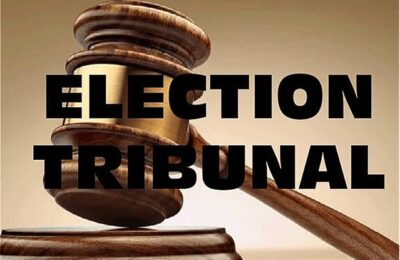There is no doubt that INEC is under a statutory obligation to transmit election results electronically. The starting point of the argument is paragraph 38 of the INEC manual made pursuant to section 149 of the Electoral Act 2022 and the 1999 constitution as amended. That paragraph which deals with the transmission of result at the polling units is crucial and it imposes a statutory obligations on the part of INEC to upload polling units results on its portal.
Before proceeding further, it is important to note that polling units results are the pyramid upon which other results are built. Therefore it is required that the moment polls come to a close and the results are declared, the results must be uploaded on INEC servers or portal.
Paragraph 38 of INEC Manual 2022 made pursuant to the provisions of the constitution of the Federal Republic of Nigeria 1999 as amended and section 149 of of the Electoral Act 2022 provides that: On completion of all the Polling Unit voting and results
procedures, the Presiding Officer shall:
(i) Electronically transmit or transfer the result of the Polling Unit, direct to the collation system as
prescribed by the Commission.
(ii) Use the BVAS to upload a scanned copy of the EC8A to the INEC Result Viewing Portal (IReV), as prescribed by the Commission.
(iii) Take the BVAS and the original copy of each of the forms in tamperevident envelope to the
Registration Area/Ward Collation Officer, in the company of Security Agents. The Polling Agents may accompany the Presiding Officer to the RA/Ward Collation Centre.
The word used in paragraph 38 of the manual made pursuant to the Electoral Act 2022 is shall. It is mandatory and compulsory. INEC has no option. So the failure to upload results and follow the procedures set out in paragraph 38 of the manual made pursuant to the Electoral Act 2022, is a fundamenal breach that has the potential of rendering the election results that did not follow those procedures null and void.
The law is that where the law has set out the procedures to be followed, that procedures and no other must be followed.
The Supreme Court in many cases made this point very clear. In Dr Nwankwo & Ors vs. Yar’adua & Ors (2010) LPELR-2109(SC) at P. 42, paras. B-E the Supreme Court said: “I will touch even briefly, on the issue or principle in respect of the laid down procedure in a statute or Rules of Court which was also briefly discussed in Chief Okereke’s v. Yar’Adua & Ors. case (supra) @ page 238 – per Onnoghen, JSC. It is now firmly established that where a statute lays down a procedure for doing a thing, there should be no other method of doing it. See the cases of CCB Plc v. The Attorney-General of Anambra State (1992) 10 SCNJ 37 at 163; Buhari v. Yusuf (2003) 6 S.C. (pt.II) 156; (2003) 4 NWLR (Pt.841) 446 @ 492. In the case of Mr. Adesola v. Alhaji Abidoye & anor. (supra). Iguh JSC @ page 96 stated that, where a special statutory provision is laid down, that procedure, ought to be followed and complied with unless it is such that may be waived.
The argument that INEC guidelines has no force of law is idle and wayward arguments. There are many decisions of our courts on this. The law has firmly been settled beyond any peradventure that the guidelines issued by INEC are subsidiary legislation made pursuant to Section 153 of the principal Act, Electoral Act, 2010 (as amended) and therefore binding. In the circumstances Exhibits INEC 1 and INEC 2, have the force of law. The Appellants were therefore obliged to comply with the mandatory directives in the time table set out in Exhibit INEC 1. In NDP V INEC NWLR (PT 1319) 176 at 196, it was held that: “The time table is a guideline with the force of law. This is because any action taken outside the published time table is fatal to the Political party involved. The activities and the time schedule set out in the time table are not directory.” “See also FALEKE VS. INEC (2016) 18 NWLR (Pt. 1543) 61 at 157; SHINKAFI VS. YARI (2016) 7 NWLR (part 1511) 340; CPC V INEC (2011) 18 NWLR (part 1279) 493 AT 542; AGBALLAH V. CHIME (2009) 1 NWLR (part 1122) 373 at 459; KUBOR VS DICKSON (2013) 4 NWLR (part 1345) AT pp 574- 575 and P.P.A VS INEC (2010) 12 NWLR (part 1207) 70 at pp 105-107.
This is not even the question of alterations of the results. It is a question of non-compliance with mandatory statutory provisions. The argument that it is only when the Chief Electoral Officer of the Federation announces the winner of the Presidential election that the results can be uploaded on the INEC portal cannot be correct. There must be uploading of results at the polling units after the polling officers had announced the winner at the polling units.
– Jubrin Sam Okutepa SAN



